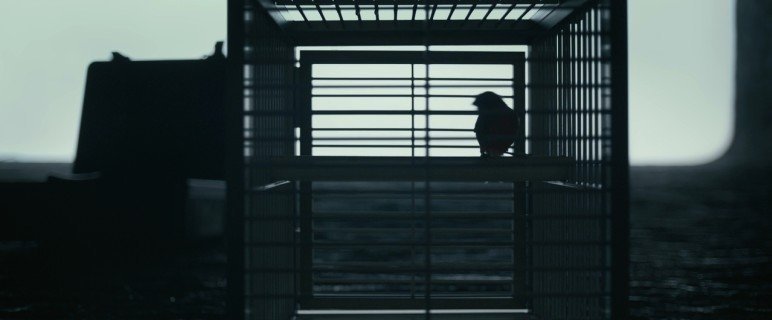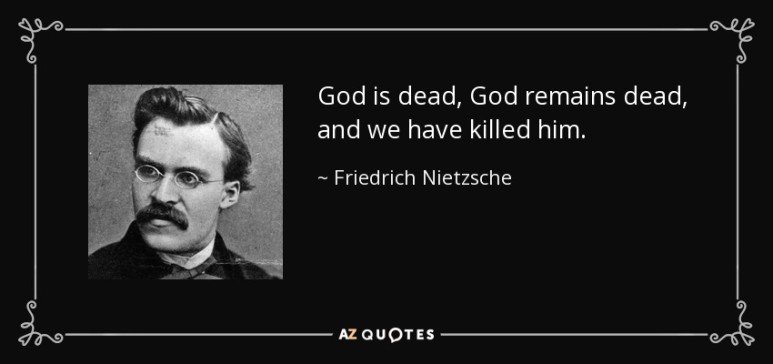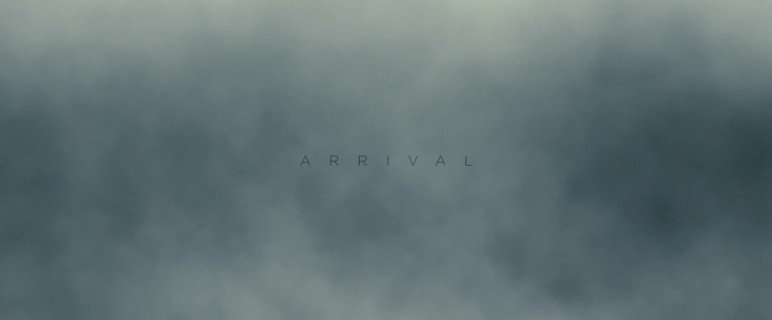Arrival - Come, my life
The very first impression of Arrival of Denis Villeneuve was the absence of aspiration and fantasy about alien species, like in Contact, by Carl Sagun. Perhaps it's because the concept of aliens in public media today is pretty much worn out compared to that in 1997 when Contact was released. However, what Denis Villeneuve tells through the alien species in the film is not a repetition of the emotional impact that ET introduced but a paean of life and human existence. Therefore those vague words about the film, saying this is about fatalism or determinism, are nothing but the residue of a superficial understanding. Words that cannot make any discourses are ‘the pearls in the necklace’ (Paul Éluard). On the other hand, the audience's pathological obsession with scientific reasoning has become prevalent on the internet since Inception makes a huge mistake. It tries to decode the allegory of art with scientific formulas. The reviews of this film on the internet are obsessed with the Sapir-Whorf hypothesis, all the blab blab about time-space, and even quantum mechanics. These days, it seems we all need one or two Ph.D. in physics to enter a theater. Amongst ambiguous pseudo-philosophy and paranoid obsession with the scientific settings of the film, the delusive discourse leaves a feeling; 'I think I saw something serious, but I don't know what it is.'
Obviously, Arrival has some of the typical Sci-fi structures, a type of which deals with the first encounter with an alien civilization, like that in Rendezvous with Rama or Close Encounters of the Third Kind. However, at the end of the movie, the center of the narrative turns out to be about human life, not the alien species itself. The film successfully maintains tension and suspense as it throws serious philosophical questions. Although it is a bit different from the original work by Ted Chang, surely, he would have been satisfied too.
Tension from the first contact with the alien species, Heptapod, and wonder about mysterious alien technology prevails in the early part of the film. However, as Louise starts zeroing in on linguistic communication with the alien species, that typical Sci-fi style development is replaced with something else. Moreover, the film doesn’t seem to focus on the success of the communication between Louise and the aliens. Traumatic flashbacks of Louise and the political turf war in the world keep intruding into the main narrative. Eventually, communication between Louise and the aliens, which seemed to be the center of the main narrative, becomes a resource for a more extensive discourse.
The film is full of mise en scenes of rhyme schemes.
The language of Heptapod has no forward or backward direction, which means it doesn’t have a beginning or end in sentences. The film applies the Sapir-Whorf hypothesis to the language of Heptapods. Through the hypothesis, which insists that one can perceive the world according to one’s language, Louise can perceive the world as Heptapods do. She sees the future, past, and present simultaneously and becomes free from the chronological order of the human world. At this point, the film starts to reveal its mystery. The images that seemed to be Louise’s flashbacks turned out to be the future of Louise that had not yet happened. The audience was actually watching a fragmented narrative, not a linear story development. This narrative debris is mixed without distinction of chronological order between the same beginning and ending scene. The cycle of time, free chronological order, actually was insinuated by the introduction scene where Louise circles around the round corridor of the hospital, saying, ‘We are so bound by time, but I’m not so sure if I believe the beginning and ending anymore’.
Nietzsche considered the world as a place where the same events repeat perpetually. It’s not that heaven or hell lies beyond life so the dead can live after death, but that life and death, every single part of one’s life, repeats forever. Nietzsche called this ‘Eternal recurrence.’ What is happening right now happened before and will happen the same. Like the Möbius strip, eternal recurrence has no beginning or end. This is a bit different from the concept of reincarnation in Buddhism. One can ascend to a higher existence through repetitive reincarnation, but Nietzsche’s eternal recurrence means the forever repetition of the same life.
The encounter between Louise and the Heptapods happened before and will happen again. Humanity will change how they perceive time with the help of Heptapods and help them in 3,000 years. Louise marries Ian and has a daughter, loses the daughter to a rare disease, and gets divorced. All these events that happened before are happening and will happen again and again, perpetually. What are all these for, however, if everything just repeats again and again without any change? For what do we live on? What does Denis Villeneuve want to tell through this eternal recurrence?
19th century modern Europe, when Nietzsche was alive, was the time when fundamental religious belief and newly rising scientific discourse collided with each other. On one side, people still believed in heaven. They thought if they lived nice and peacefully as their religion told them, they could be rewarded in heaven. With that firm belief, they endured poverty, pain, and injustice in the world, justifying all those tragedies with the concept of original sin in Christianity. The Christian perspective on the universe made people believe that happiness comes from our father in heaven and unhappiness comes from the sin of humans. Consequently, people don't live but endure their life, hoping that one day they will enjoy sweet rewards from their father. So life in the world is not as important as life to come in the afterworld. On top of this, actions and thoughts that were allowed by the church were the main homework to accomplish to enter glorious heaven. Bigger structures like Christianity and the ancien régime restrained human life. Nietzsche called people who were so deep in religion 'gloomy, tiny and puny men.' On the other side, modern science revealed what Christianity had covered with lies and sweet delusion. Science revealed there is no such thing as heaven or hell. People who had lost the aspiration for heaven would waste their lives in nihilism and pessimism.
In the middle of this chaotic time, Nietzsche insisted on the concept of eternal recurrence, denying any foam of eschatology and nihilism. There are two possibilities here. One is to be wasted, prostrate by the meaninglessness of repetitive life. The other is to accept the recurrence and to love each moment of circulation, to love one’s life as its master. Eternal recurrence helps people to perceive life as a whole, not as means. Since endless recurrence has no beginning or end, this very moment is whole, an eternity. Tragedy and bliss are parts of the same life; every moment is forever without end or beginning. In other words, if one embraces every single moment and devotes oneself to life, one’s positive energy and love for life repeats forever. Justifying tragedy and kneeling before it is how slaves live their life. Without nihilistic smirks, without dependence on religious excuses, one can embrace pain as a part of my life and fight for it. Consequently, eternal recurrence leads to will to power.
‘We are the masters of our fate. we are the captains of our souls’
The will to power, eternal recurrence, and ubermensch are not separable. They are constituent parts of Nietzsche’s attitude toward human life. Ubermensch is an ideal type of human in Nietzsche’s philosophy, who does something because ‘he/she wants to’, not because ‘he/she has to do to fulfill the doctrine of any existing structure, such as Christianity. Since this very moment repeats forever, one should do something as an active master of one’s life. Not as a part of a big machine, like religion or society, but as human existence, one should fill up the world with the power of humans. Of course, this is not an easy thing to do. Accepting the same life that repeats perpetually sounds hard and somewhat horrifying. However, when those who love their life wholeheartedly make such a decision, they become ubermensch, surpassing depression, fear, and nihilism in the world where God is dead. By doing so, the sublimity of humans, the will of the master of life, resonates forever in the wilderness.
Louise decides to embrace the bliss of having a daughter and the tragedy of losing her,
for she can’t just let life flow away due to fear of tragedy.
Villeneuve uses Nietzsche’s point of view to construct his discourse about the world. Louise experiences eternal recurrence as she learns the logogram of Heptapods and becomes Ubermensch. She knows that she will marry Ian and then get divorced, and her beloved daughter will die no matter what. Like her daughter Hanna said, these are unstoppable. However, the fragmented images do not only show tragedy. They also show happy moments in Louise’s life. Again, these precious moments are also unstoppable. Louise has decided to embrace all of these. She doesn’t endure her painful life or lets it flow into the swear of nihilism. She chooses to love and live her life.
Eternal recurrence is not a scientific fact or mathematical equation. Nietzsche's allegorical ideas sound a bit off to people in the modern age. He didn't argue for eternal recurrence to prove an actual repetition of time or to build a new scientific theory. This concept is Nietzsche's tool to draw ubermensch from people's hearts. (Hannah Arent's interpretation) Nietzsche's famous quote, 'God is dead' doesn't mean a literal death of God but a proclamation against metaphysical structures, the Christian virtue, Christian eschatology, and the way of life forced by Christianity. By declaring God's death, Nietzsche tried to cope with the metaphysical enforcements that restrict human life.
Moreover, Nietzsche knew that if Christian values or structural powers were gone, people would be lonely and confused by the absence of existing virtue. This is why he cried out to become ubermensch, a superman who does by one's own will, not by other superstructures. As an ubermensch, humans can cope with meaninglessness and the absence of Christian values in the world after God's death. With a strong will to power, ubermensch becomes a master of life.
Villeneuve has dealt with human existences bound by bigger structures and the shattered world ever since Incendies. In SICARIO, individuals are manipulated and used as tools by two immense powers, America and a Mexican cartel. The scene where a special corps infiltrates a cartel base in the film evokes the image of video gaming, insinuating that structures control individuals. Divided by a border, people die and destroy each other for the powers that give them orders. Arrival shows people divided by different national interests throughout the entire running time. Soldiers unquestioningly obey orders from superiors. A CIA officer yells at Louise, ‘You are committing an act of treason. On the contrary, Louise, who experienced eternal recurrence and has become ubermensch, successfully persuades general Shang and stops the imminent war. Ironically, the language that divided humanity now heals the fractures in the world.
Some say Villeneuve's point of view is not far from fairytale-like innocence. The wounds in the world too easily heal, and a couple of individuals easily solve serious structural issues. Honestly, even if one embraces life as it is and becomes a master of one's life, that doesn't guarantee perfect peace between different interest groups. After Nietzsche's time, the fact that a hyper-structural being is impossible is another concern to Villeneuve. Nevertheless, from Marwan in Incendies to Macer in SICARIO, what seamed up the shattered world was one small yet brave decision by an individual. The same holds for Louise in Arrival. Becoming an ubermensch, Louise spreads gifts of Heptapods to entire worlds, and humanity prevents self-destruction. Not by government, not by religion, but by her own will, Louise saved the world and let her bravery and positiveness echo across the world eternally. Even general Shang also says to Louise, "you did something not even my superior has done." Perhaps Villeneuve deliberately avoids grand narratives, focusing on personal awakening to seam up tears in the world.
Putting aside an argument that whether this is infantile fantasy or noble belief, let’s focus on life, which is at the center of Villeneuve’s discourses. Nietzsche’s philosophy has been more than often misunderstood as a philosophy of power, ego-centric mumbling, and actually, one mad man indeed weaponized it for his genocide. In the end, however, eternal recurrence, ubermensch, the will to power, all of his philosophical concepts are meant for human life. Other than life itself, nothing can sit on a throne.
Today is the last day of 2017, and the new year will soon begin. Looking back at this year, it was full of heteronomy. People hated, killed, and destroyed each other according to the historical atmosphere, governmental doctrines, or religious beliefs. Amongst hate speech and sunken refugee ships at the bottom of the Mediterranean, I'm writing this paper at this very moment that connects the end and beginning. Walking forward to love her daughter, Louise says, 'despite knowing the journey and where it leads, I embrace it and welcome every moment of it.' Her remark is a proud manifesto about her will, a will to be the master of her life. Spreading the sublimity of humans, the ubermensch has its will echo in the wilderness forever.
After a year of many sorrows and despairs, with subtle anxiety for the sea of the fog ahead, like Louis did, Zarathustra to come says,
'Was that life? Well then, once more!'













